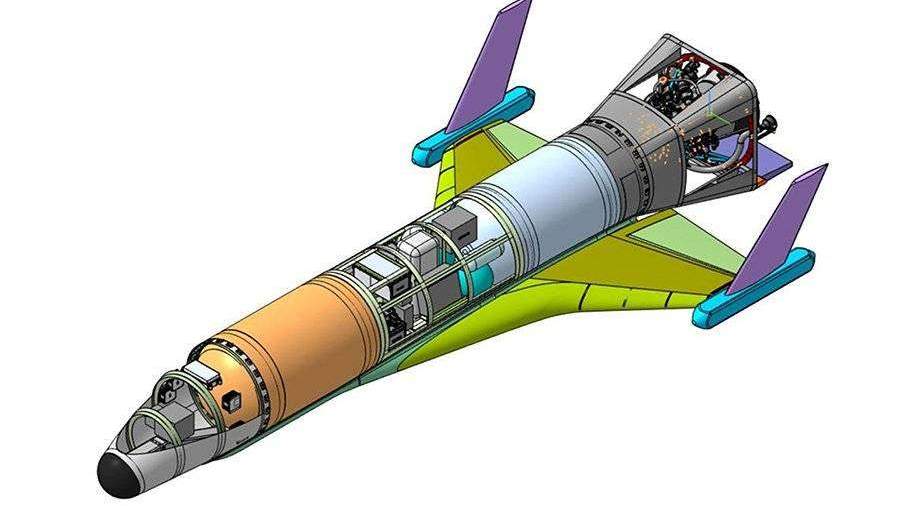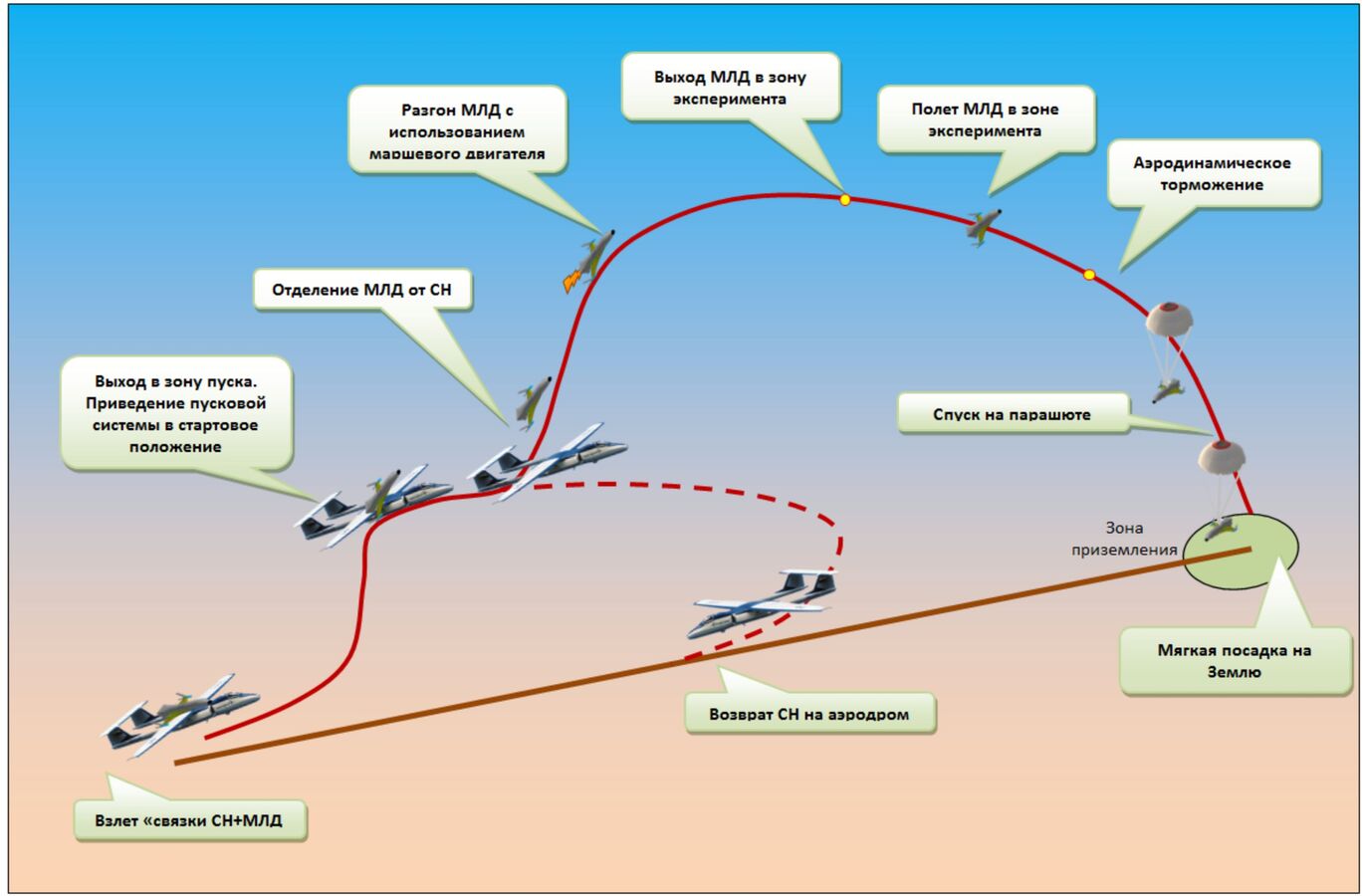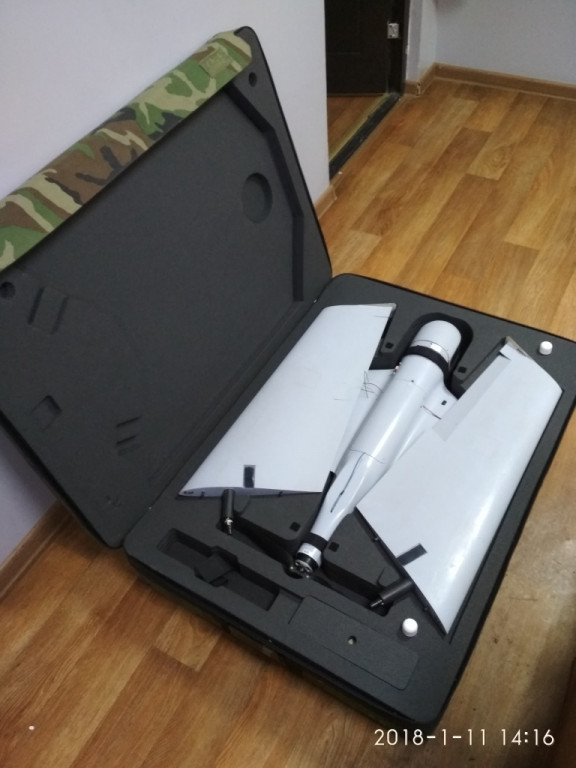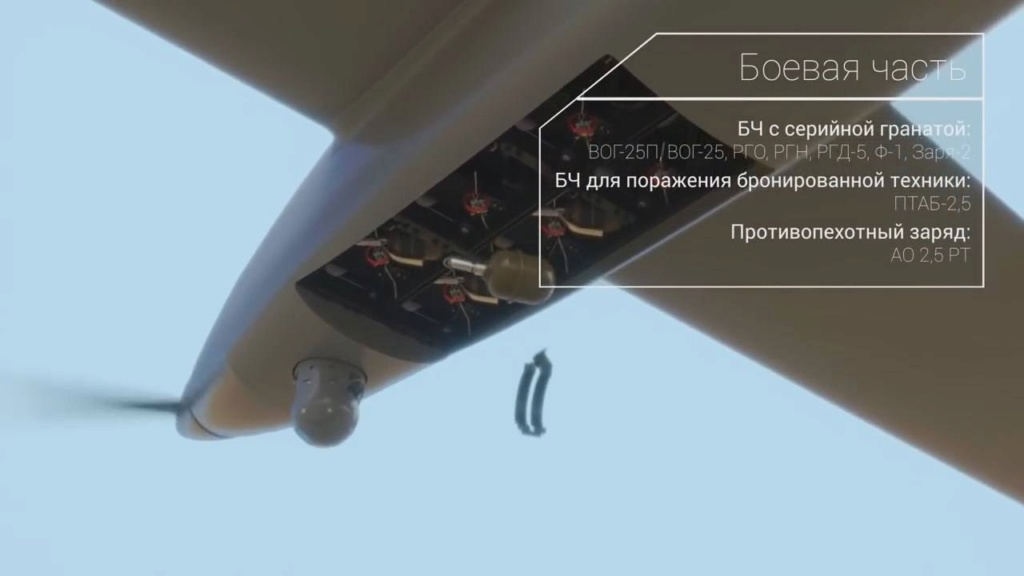Picture of a russian drone that launches hand grenades from a weapon bay. Was already tested. Can someone post the image here ?
+88
archangelski
Hole
southpark
bolshevik345
Rodion_Romanovic
higurashihougi
Tsavo Lion
ATLASCUB
GunshipDemocracy
dino00
Nibiru
LMFS
marcellogo
Azi
Batajnica
Arctic_Fox
miketheterrible
franco
Benya
Isos
JohninMK
storm333
SeigSoloyvov
theking950
jaguar_br
d_taddei2
Book.
OminousSpudd
x_54_u43
r111
Backinblack
Neutrality
ult
Zivo
GJ Flanker
Kyo
KoTeMoRe
Dima
PapaDragon
mutantsushi
Project Canada
2SPOOKY4U
max steel
RTN
victor1985
Vann7
par far
kvs
Mike E
Cpt Caz
Werewolf
eridan
Strizh
magnumcromagnon
Hannibal Barca
AbsoluteZero
zg18
Deep Throat
Morpheus Eberhardt
mack8
TR1
flamming_python
Firebird
AlfaT8
xeno
Hachimoto
ahmedfire
Pyrrus
collegeboy16
Mr.Kalishnikov47
KomissarBojanchev
Sujoy
victor7
TheArmenian
Russian Patriot
George1
Cyberspec
Flanky
Pervius
medo
Viktor
nightcrawler
NationalRus
Austin
GarryB
sepheronx
Vladislav
Admin
92 posters
UAVs in Russian Armed Forces: News

Isos- Posts : 11379
Points : 11347
Join date : 2015-11-06
- Post n°826
 Re: UAVs in Russian Armed Forces: News
Re: UAVs in Russian Armed Forces: News
https://mobile.twitter.com/warsmonitoring/status/1089981685310124033
Picture of a russian drone that launches hand grenades from a weapon bay. Was already tested. Can someone post the image here ?
Picture of a russian drone that launches hand grenades from a weapon bay. Was already tested. Can someone post the image here ?

dino00- Posts : 1677
Points : 1714
Join date : 2012-10-12
Age : 36
Location : portugal
- Post n°827
 Re: UAVs in Russian Armed Forces: News
Re: UAVs in Russian Armed Forces: News

ATLASCUB- Posts : 1154
Points : 1158
Join date : 2017-02-13
- Post n°828
 Re: UAVs in Russian Armed Forces: News
Re: UAVs in Russian Armed Forces: News

miketheterrible- Posts : 7383
Points : 7341
Join date : 2016-11-06
- Post n°829
 Re: UAVs in Russian Armed Forces: News
Re: UAVs in Russian Armed Forces: News
Others do the same thing. So a small drone to drop on units gathered, isn't that bad of an idea. But I don't see much need for it.
I can see comments are just retarded people, not knowing that all these drones are from different companies.
I can see comments are just retarded people, not knowing that all these drones are from different companies.

Hole- Posts : 10982
Points : 10962
Join date : 2018-03-24
Age : 48
Location : Scholzistan
- Post n°830
 Re: UAVs in Russian Armed Forces: News
Re: UAVs in Russian Armed Forces: News
This drone is called Karnivora.

ATLASCUB- Posts : 1154
Points : 1158
Join date : 2017-02-13
- Post n°831
 Re: UAVs in Russian Armed Forces: News
Re: UAVs in Russian Armed Forces: News
Hole wrote:This drone is called Karnivora.
Nice.

GarryB- Posts : 39672
Points : 40168
Join date : 2010-03-30
Location : New Zealand
- Post n°832
 Re: UAVs in Russian Armed Forces: News
Re: UAVs in Russian Armed Forces: News
This made me laugh....
"Grenade!!!!!!!!"
Others do the same thing. So a small drone to drop on units gathered, isn't that bad of an idea. But I don't see much need for it.
I can see comments are just retarded people, not knowing that all these drones are from different companies.
Lets be honest... if it was an american idea the munitions it drops would be custom designed precision made with an expensive fuse for airburst at specific altitudes.
The system would be enormously expensive... and would need to be kept in a tent when it gets cold.

dino00- Posts : 1677
Points : 1714
Join date : 2012-10-12
Age : 36
Location : portugal
- Post n°833
 Re: UAVs in Russian Armed Forces: News
Re: UAVs in Russian Armed Forces: News
Carnivora UAV

Hole- Posts : 10982
Points : 10962
Join date : 2018-03-24
Age : 48
Location : Scholzistan
- Post n°834
 Re: UAVs in Russian Armed Forces: News
Re: UAVs in Russian Armed Forces: News
This drone is like a RPK dispenser than can land and be re-loaded.
Interesting launch method.
Interesting launch method.

GarryB- Posts : 39672
Points : 40168
Join date : 2010-03-30
Location : New Zealand
- Post n°835
 Re: UAVs in Russian Armed Forces: News
Re: UAVs in Russian Armed Forces: News
Shame the video only shows the use of the hand grenades and not the anti armour or anti personel munitions.
The hand grenades have 4-5 second fuses so would need to be dropped from very specific altitudes and flight speeds... with Betab munitions they could be dropped from almost any height.
The capture of an enemy drone is interesting... clever idea in that it limits collateral damage even if the target drone is armed... wrapped in a net it will be unable to launch or release weapons effectively.
The hand grenades have 4-5 second fuses so would need to be dropped from very specific altitudes and flight speeds... with Betab munitions they could be dropped from almost any height.
The capture of an enemy drone is interesting... clever idea in that it limits collateral damage even if the target drone is armed... wrapped in a net it will be unable to launch or release weapons effectively.

ATLASCUB- Posts : 1154
Points : 1158
Join date : 2017-02-13
- Post n°836
 Re: UAVs in Russian Armed Forces: News
Re: UAVs in Russian Armed Forces: News
dino00 wrote:Carnivora UAV
That's a nice promo. Would have been great with a Lockheed Martin marketing voiceover. I'm pretty sure they can fit quite a bit of marketing buzzwords in there... like Garry alluded to.

GarryB- Posts : 39672
Points : 40168
Join date : 2010-03-30
Location : New Zealand
- Post n°837
 Re: UAVs in Russian Armed Forces: News
Re: UAVs in Russian Armed Forces: News
This drone is like a RPK dispenser than can land and be re-loaded.
That would be the KGMU-2 pod... looks like a cluster bomb but is not dropped... it releases its cluster munitions but stays attached to the aircraft and gets reloaded and reused... you just fill it up with the submunitions you want and you are ready to go.
I seem to remember the Tornado having two optional systems that were similar... one fired munitions out sideways and the other launched them straight down...

marcellogo- Posts : 660
Points : 666
Join date : 2012-08-02
Age : 55
Location : Italy
- Post n°838
 Re: UAVs in Russian Armed Forces: News
Re: UAVs in Russian Armed Forces: News
GarryB wrote:This drone is like a RPK dispenser than can land and be re-loaded.
That would be the KGMU-2 pod... looks like a cluster bomb but is not dropped... it releases its cluster munitions but stays attached to the aircraft and gets reloaded and reused... you just fill it up with the submunitions you want and you are ready to go.
I seem to remember the Tornado having two optional systems that were similar... one fired munitions out sideways and the other launched them straight down...
Yes, German MW-1 (used by Italians also) and British JP-233 (used by Saudi also) they were discontinued both for legal (ottawa treaty) than operative reasons (passing over an enemy airport to deliver them was deemed too risky).

Austin- Posts : 7617
Points : 8014
Join date : 2010-05-08
Location : India
- Post n°839
 Re: UAVs in Russian Armed Forces: News
Re: UAVs in Russian Armed Forces: News
The image of the first hypersonic space drone in Russia has appeared
https://ria.ru/20190204/1550328563.html?utm_source=yxnews&utm_medium=desktop


https://ria.ru/20190204/1550328563.html?utm_source=yxnews&utm_medium=desktop


MOSCOW, February 4 - RIA News . RIA Novosti has at its disposal an image of a model of the first in Russia reusable aircraft designed for flying in the atmosphere and space at hypersonic speeds.
The photo shows a single-engine UAV, which is a prototype of a promising reusable aircraft. The second image, also available to RIA Novosti, shows the scheme of launching this unit into orbit and its return to earth using parachutes.
Earlier in the Skolkovo Foundation, RIA Novosti reported that the reusable flight demonstrator developed by ISON in the interests of Roskosmos is equipped with its own propulsion system to disperse to the required speeds and uses an aircraft carrier at the initial stage of flight. This makes it reusable and makes it possible to repeat the tests and improve the quality of preliminary flight testing.
According to the agency, General Director of JSC "ISON" Yuri Bakhvalov, for the production of this aircraft will be used only serial components manufactured in Russia, and the engine will receive a UAV from the upper stage "Briz-M" - 14D30. The interviewee said that the use of the device for percussion purposes is not planned. And answering the question of whether this UAV will be offered for export, he noted that "today experiments are planned in the interests of foreign customers."
"In 2023, it is planned to conduct five flight tests of a prototype using an aircraft carrier, which will be M-55 Geofizika," said Bakhvalov, speaking about the timing of this project.It is assumed that the device will be able to fly at altitudes of up to 160 kilometers at speeds of 7 max or bring the spacecraft into orbit up to 500 kilometers. Each such hypersonic device is designed for at least 50 flights.
At the development stage from 2015 to 2017, the project attracted 25 million rubles from a private investor of the Project Technika Corporation, and received a grant from the Skolkovo Foundation in the amount of 30 million rubles. At the moment, there is an active preparation for the implementation of the second stage of work, the cost of which will be 280 million rubles. In addition to the grant from the Skolkovo Foundation, which may amount to 120 million rubles, the company plans to attract co-investors in the amount of 160 million rubles. Currently, there is a private co-investor with a financing volume of 80 million rubles.
In the framework of the project, in 2017–2018 a program of aerodynamic tests was developed, an aerodynamic model was made, which was tested in wind tunnels at speeds of up to 4 max. In addition to the Roscosmos license, an international quality management system certificate was received for the development and creation of rocket and space technology.
It is assumed that during the implementation of the second stage of testing (2019-2021), technical documentation for the aircraft, ground complex and mock-ups for testing will be developed, production prepared, a layout made and dynamic tests carried out. The third stage (2021-2023) will include the manufacture of mock-ups and testing with them, the preparation of the flight base and the carrier aircraft, the manufacture of a standard aircraft and the conduct of five flight tests using the carrier aircraft.
Corporation "Project Engineering" is engaged in the production of specialized mobile equipment and electrical engineering. The products of the corporation are represented in 21 countries of the world as independent products and complexes, or as part of air defense and electronic warfare complexes. For certain types of initiative-developed products, the corporation is the only supplier of the Russian Ministry of Defense.

dino00- Posts : 1677
Points : 1714
Join date : 2012-10-12
Age : 36
Location : portugal
- Post n°840
 Re: UAVs in Russian Armed Forces: News
Re: UAVs in Russian Armed Forces: News
Source: on the Russian drone "Orion" tested weapons in 2018
TASS interviewer did not specify what brand of ammunition in question
MOSCOW, February 5. / TASS /. On the Russian unmanned aerial vehicle of the long duration of the Orion flight, developed by the Kronstadt group, the armament was tested in 2018. This was announced on Tuesday by a TASS source in the military-industrial complex
"With the UAV, the Orion bombs were used for testing. This happened last year," the agency’s source said. He did not specify what brand of ammunition in question. The interlocutor added that Orion was also tested in Syria, but without armament, but as an intelligence apparatus.
In the Kronstadt group, TASS did not comment on the information provided by the source.
In 2017, at the military-technical forum "Army-2017", OKB Aviaavtomatika LLC presented a line of aircraft weapons for UAVs from three types of ammunition weighing 25-50 kg. The family of ammunition is built on a modular principle with a single constructive base. The developer’s stated launch range is up to 100 km. At the same time, it was reported that ammunition participated in tests on one of the "large" domestic UAVs.
Already at the Army-2018 forum, the Kronstadt group also demonstrated the Orion control unit for weapons and a prototype of its own design of mass up to 50 kg.
More
https://tass.ru/armiya-i-opk/6078074
TASS interviewer did not specify what brand of ammunition in question
MOSCOW, February 5. / TASS /. On the Russian unmanned aerial vehicle of the long duration of the Orion flight, developed by the Kronstadt group, the armament was tested in 2018. This was announced on Tuesday by a TASS source in the military-industrial complex
"With the UAV, the Orion bombs were used for testing. This happened last year," the agency’s source said. He did not specify what brand of ammunition in question. The interlocutor added that Orion was also tested in Syria, but without armament, but as an intelligence apparatus.
In the Kronstadt group, TASS did not comment on the information provided by the source.
In 2017, at the military-technical forum "Army-2017", OKB Aviaavtomatika LLC presented a line of aircraft weapons for UAVs from three types of ammunition weighing 25-50 kg. The family of ammunition is built on a modular principle with a single constructive base. The developer’s stated launch range is up to 100 km. At the same time, it was reported that ammunition participated in tests on one of the "large" domestic UAVs.
Already at the Army-2018 forum, the Kronstadt group also demonstrated the Orion control unit for weapons and a prototype of its own design of mass up to 50 kg.
More
https://tass.ru/armiya-i-opk/6078074

dino00- Posts : 1677
Points : 1714
Join date : 2012-10-12
Age : 36
Location : portugal
- Post n°841
 Re: UAVs in Russian Armed Forces: News
Re: UAVs in Russian Armed Forces: News
Austin wrote:The image of the first hypersonic space drone in Russia has appeared
https://ria.ru/20190204/1550328563.html?utm_source=yxnews&utm_medium=desktop
MOSCOW, February 4 - RIA News . RIA Novosti has at its disposal an image of a model of the first in Russia reusable aircraft designed for flying in the atmosphere and space at hypersonic speeds.
The photo shows a single-engine UAV, which is a prototype of a promising reusable aircraft. The second image, also available to RIA Novosti, shows the scheme of launching this unit into orbit and its return to earth using parachutes.
Earlier in the Skolkovo Foundation, RIA Novosti reported that the reusable flight demonstrator developed by ISON in the interests of Roskosmos is equipped with its own propulsion system to disperse to the required speeds and uses an aircraft carrier at the initial stage of flight. This makes it reusable and makes it possible to repeat the tests and improve the quality of preliminary flight testing.
According to the agency, General Director of JSC "ISON" Yuri Bakhvalov, for the production of this aircraft will be used only serial components manufactured in Russia, and the engine will receive a UAV from the upper stage "Briz-M" - 14D30. The interviewee said that the use of the device for percussion purposes is not planned. And answering the question of whether this UAV will be offered for export, he noted that "today experiments are planned in the interests of foreign customers."
"In 2023, it is planned to conduct five flight tests of a prototype using an aircraft carrier, which will be M-55 Geofizika," said Bakhvalov, speaking about the timing of this project.It is assumed that the device will be able to fly at altitudes of up to 160 kilometers at speeds of 7 max or bring the spacecraft into orbit up to 500 kilometers. Each such hypersonic device is designed for at least 50 flights.
At the development stage from 2015 to 2017, the project attracted 25 million rubles from a private investor of the Project Technika Corporation, and received a grant from the Skolkovo Foundation in the amount of 30 million rubles. At the moment, there is an active preparation for the implementation of the second stage of work, the cost of which will be 280 million rubles. In addition to the grant from the Skolkovo Foundation, which may amount to 120 million rubles, the company plans to attract co-investors in the amount of 160 million rubles. Currently, there is a private co-investor with a financing volume of 80 million rubles.
In the framework of the project, in 2017–2018 a program of aerodynamic tests was developed, an aerodynamic model was made, which was tested in wind tunnels at speeds of up to 4 max. In addition to the Roscosmos license, an international quality management system certificate was received for the development and creation of rocket and space technology.
It is assumed that during the implementation of the second stage of testing (2019-2021), technical documentation for the aircraft, ground complex and mock-ups for testing will be developed, production prepared, a layout made and dynamic tests carried out. The third stage (2021-2023) will include the manufacture of mock-ups and testing with them, the preparation of the flight base and the carrier aircraft, the manufacture of a standard aircraft and the conduct of five flight tests using the carrier aircraft.
Corporation "Project Engineering" is engaged in the production of specialized mobile equipment and electrical engineering. The products of the corporation are represented in 21 countries of the world as independent products and complexes, or as part of air defense and electronic warfare complexes. For certain types of initiative-developed products, the corporation is the only supplier of the Russian Ministry of Defense.

dino00- Posts : 1677
Points : 1714
Join date : 2012-10-12
Age : 36
Location : portugal
- Post n°842
 Re: UAVs in Russian Armed Forces: News
Re: UAVs in Russian Armed Forces: News
Concern "Kalashnikov" has developed a high-precision attack unmanned complex "KUB-BLA"(Suicide Drone)
In the framework of the International Exhibition of Arms and Military Equipment “IDEX-2019” in Abu Dhabi, the Kalashnikov Concern (included in Rostec) presented a new intelligent weapon - the high-precision attack unmanned aerial system “KUB-BLA”.
Unmanned vehicle complexes of guided munitions are currently one of the most promising areas in the development of unmanned aircraft systems. "KUB-BLA" is designed to destroy remote ground targets. An unmanned aerial vehicle delivers a special load on the coordinates of the target, which are set manually or in the image from the target load of guidance.
“This complex is a step towards a completely new combat operations. We confidently keep in the forefront among the countries-producers of such weapons, ”said Sergey Chemezov, Rostec CEO. “High-precision unmanned projectile flies up to 30 minutes at a speed of 130 km per hour. The charge on this complex is delivered to the target, regardless of its secrecy and terrain, both small and at high altitudes. This is a very accurate and most effective weapon that is very difficult to fight with using traditional air defense systems. ”
The advantages of the complex are hidden launch, high accuracy of the shot, noiselessness and ease of handling. The speed range is 80-130 km / h., The flight duration is 30 minutes, the payload mass is 3 kg., Dimensions are 1210 * 950 * 165 mm. Impact drone complex has been successfully tested and is ready for use.
https://kalashnikov.media/video/technology/kontsern-kalashnikov-razrabotal-vysokotochnyy-udarnyy-bespilotnyy-kompleks-kub-bla
Video in the link
In the framework of the International Exhibition of Arms and Military Equipment “IDEX-2019” in Abu Dhabi, the Kalashnikov Concern (included in Rostec) presented a new intelligent weapon - the high-precision attack unmanned aerial system “KUB-BLA”.
Unmanned vehicle complexes of guided munitions are currently one of the most promising areas in the development of unmanned aircraft systems. "KUB-BLA" is designed to destroy remote ground targets. An unmanned aerial vehicle delivers a special load on the coordinates of the target, which are set manually or in the image from the target load of guidance.
“This complex is a step towards a completely new combat operations. We confidently keep in the forefront among the countries-producers of such weapons, ”said Sergey Chemezov, Rostec CEO. “High-precision unmanned projectile flies up to 30 minutes at a speed of 130 km per hour. The charge on this complex is delivered to the target, regardless of its secrecy and terrain, both small and at high altitudes. This is a very accurate and most effective weapon that is very difficult to fight with using traditional air defense systems. ”
The advantages of the complex are hidden launch, high accuracy of the shot, noiselessness and ease of handling. The speed range is 80-130 km / h., The flight duration is 30 minutes, the payload mass is 3 kg., Dimensions are 1210 * 950 * 165 mm. Impact drone complex has been successfully tested and is ready for use.
https://kalashnikov.media/video/technology/kontsern-kalashnikov-razrabotal-vysokotochnyy-udarnyy-bespilotnyy-kompleks-kub-bla
Video in the link

medo- Posts : 4343
Points : 4423
Join date : 2010-10-24
Location : Slovenia
- Post n°843
 Re: UAVs in Russian Armed Forces: News
Re: UAVs in Russian Armed Forces: News
Russia is developing their own Harpy like kamikaze drones.  Big headache for US air defense. They will be now also on receiving end of such swarm of kamikaze drones.
Big headache for US air defense. They will be now also on receiving end of such swarm of kamikaze drones.
 Big headache for US air defense. They will be now also on receiving end of such swarm of kamikaze drones.
Big headache for US air defense. They will be now also on receiving end of such swarm of kamikaze drones.
GunshipDemocracy- Posts : 6101
Points : 6121
Join date : 2015-05-17
Location : fishin on Stalin´s Strait between Mexico and Canada
- Post n°844
 Re: UAVs in Russian Armed Forces: News
Re: UAVs in Russian Armed Forces: News
medo wrote:Russia is developing their own Harpy like kamikaze drones.Big headache for US air defense. They will be now also on receiving end of such swarm of kamikaze drones.
The best is that this is in fact ol' good Zala concept in new edition. Noiseless - electric motor . Cool.
one of Zala earlier family members, not pocket but suitcase drone ;-)

Last edited by GunshipDemocracy on Mon Feb 18, 2019 4:09 am; edited 1 time in total

higurashihougi- Posts : 3176
Points : 3263
Join date : 2014-08-13
Location : A small and cutie S-shaped land.
- Post n°845
 Re: UAVs in Russian Armed Forces: News
Re: UAVs in Russian Armed Forces: News
medo wrote:Russia is developing their own Harpy like kamikaze drones.Big headache for US air defense. They will be now also on receiving end of such swarm of kamikaze drones.
Kamikaze drones are nothing new.
ATGM, AA missiles, SAM missiles, cruise missiles,... are kamikaze drones literally.
The more suitable item in the battlefield should be a scouting drone which is able to replace the human scout team to instruct and guide the artillery and missiles.
A drone which are able to operate autonomously, with the scouting ability, with this and that sensors and cameras... are too much valuable to be a used only one time... except it is design to destroy a vital target which can decisively decide the outcome of the battle.
The principle of kamikaze UAV is that it has to be many times cheaper than the target which is intended to be destroy.

Isos- Posts : 11379
Points : 11347
Join date : 2015-11-06
- Post n°846
 Re: UAVs in Russian Armed Forces: News
Re: UAVs in Russian Armed Forces: News
higurashihougi wrote:
The principle of kamikaze UAV is that it has to be many times cheaper than the target which is intended to be destroy.
Replace tge suicide part of the flight by a grenade launch and you have a reusable cheap drone drone.
In terms of price even if it is 1 million $ it is worth using it to destroy a patriot radar that cost 100 million. Having such radar destroy means much more freedome for your aviation.
There is no more cheap anti air systems. They are all f*cking expensive and in low numbers.

flamming_python- Posts : 9284
Points : 9346
Join date : 2012-01-30
- Post n°847
 Re: UAVs in Russian Armed Forces: News
Re: UAVs in Russian Armed Forces: News
dino00 wrote:Concern "Kalashnikov" has developed a high-precision attack unmanned complex "KUB-BLA"(Suicide Drone)
In the framework of the International Exhibition of Arms and Military Equipment “IDEX-2019” in Abu Dhabi, the Kalashnikov Concern (included in Rostec) presented a new intelligent weapon - the high-precision attack unmanned aerial system “KUB-BLA”.
Unmanned vehicle complexes of guided munitions are currently one of the most promising areas in the development of unmanned aircraft systems. "KUB-BLA" is designed to destroy remote ground targets. An unmanned aerial vehicle delivers a special load on the coordinates of the target, which are set manually or in the image from the target load of guidance.
“This complex is a step towards a completely new combat operations. We confidently keep in the forefront among the countries-producers of such weapons, ”said Sergey Chemezov, Rostec CEO. “High-precision unmanned projectile flies up to 30 minutes at a speed of 130 km per hour. The charge on this complex is delivered to the target, regardless of its secrecy and terrain, both small and at high altitudes. This is a very accurate and most effective weapon that is very difficult to fight with using traditional air defense systems. ”
The advantages of the complex are hidden launch, high accuracy of the shot, noiselessness and ease of handling. The speed range is 80-130 km / h., The flight duration is 30 minutes, the payload mass is 3 kg., Dimensions are 1210 * 950 * 165 mm. Impact drone complex has been successfully tested and is ready for use.
https://kalashnikov.media/video/technology/kontsern-kalashnikov-razrabotal-vysokotochnyy-udarnyy-bespilotnyy-kompleks-kub-bla
Video in the link
Not very impressive considering that the Israeli equivalent can go at something like 185 km/h and has an endurance of up to 6 hours
30 minutes is not long enough to be useful in any type of Air Force operation. This is something that would be useful for the motor-rifles, engineer battallions, etc... assuming that it can be launched from the ground without any complicated equipment and operated from something like a laptop. Would be good for reducing bunkers, fortifications, garrisoned buildings, AT guns, etc...
Or as GarryB says - for launch from something like a Ka-52.
higurashihougi wrote:medo wrote:Russia is developing their own Harpy like kamikaze drones.Big headache for US air defense. They will be now also on receiving end of such swarm of kamikaze drones.
Kamikaze drones are nothing new.
ATGM, AA missiles, SAM missiles, cruise missiles,... are kamikaze drones literally.
The more suitable item in the battlefield should be a scouting drone which is able to replace the human scout team to instruct and guide the artillery and missiles.
A drone which are able to operate autonomously, with the scouting ability, with this and that sensors and cameras... are too much valuable to be a used only one time... except it is design to destroy a vital target which can decisively decide the outcome of the battle.
The principle of kamikaze UAV is that it has to be many times cheaper than the target which is intended to be destroy.
Essentially yes, they are kamikaze drones, but they all tend to go at high speeds and do need their target to be acquired and tracked before launch; even if you do have the option of manually guiding them to an extent or retargeting them.
A drone is much smaller, and much quieter, with a lower radar signature. They also have endurance, like an aircraft. It can sneak in, identify targets, and then you can choose yourself who to attack, from what angle and precisely when (for co-ordination with other drones)

GarryB- Posts : 39672
Points : 40168
Join date : 2010-03-30
Location : New Zealand
- Post n°848
 Re: UAVs in Russian Armed Forces: News
Re: UAVs in Russian Armed Forces: News
A drone which are able to operate autonomously, with the scouting ability, with this and that sensors and cameras... are too much valuable to be a used only one time... except it is design to destroy a vital target which can decisively decide the outcome of the battle.
The principle of kamikaze UAV is that it has to be many times cheaper than the target which is intended to be destroy.
The system shown looks like a system shown for the Ka-52 and was designed to be carried in boxes of 4-5 UAVs that could be released in flight to scout the area ahead... having an endurance of 35 minutes would be ideal, and a suicide terminal phase would solve the problem of recovering such a UAV in the field...
Such drones could be made relatively cheaply and mass produced in fairly large numbers... and if they accurately hit a target that could threaten a multi million dollar attack helo then they would be well worth it.
Certainly it is up to the crew to decide whether to send a drone in or to pop up over the hill and have a look themselves... but a lot of enemy activity could make it a suicide mission anyway so sending in a suicide drone lets you sit back and mark detected targets on a map from a high altitude drone or even satellite scanning for radar emissions and small arms fire etc etc... lots of data could be collected as to the enemy force strength and location without risking an expensive attack helo.
Not very impressive considering that the Israeli equivalent can go at something like 185 km/h and has an endurance of up to 6 hours
I suspect it is designed to operate from aircraft like the Ka-52 in the recon mission as a tool to search ahead in enemy airspace looking for ground threats and enemy air defence systems... it would get all the small air defence systems to light up and then you could hit them with ARMs while this drone picks one target to take out...
Collecting data on the enemy... location of positions and strengths as well as what equipment and systems are there... ie radar or SAMs or other things could be monitored by platforms further away like a modified Tu-214 or something... pretty much acting like a JSTARS... it would take a bit of small arms fire to bring down such a drone... lots of wing surface area so rifle calibre holes in it are not going to get the job done very easily....

higurashihougi- Posts : 3176
Points : 3263
Join date : 2014-08-13
Location : A small and cutie S-shaped land.
- Post n°849
 Re: UAVs in Russian Armed Forces: News
Re: UAVs in Russian Armed Forces: News
flamming_python wrote:A drone is much smaller, and much quieter, with a lower radar signature. They also have endurance, like an aircraft. It can sneak in, identify targets, and then you can choose yourself who to attack, from what angle and precisely when (for co-ordination with other drones)
Which means they may have a relatively small niche, and a high-end one, that is surprise attack against vital targets. The target is quite a VIP one in order to be targeted by such an UAV.
In reality, in order to hit the VIP target, months of investigations and large amount of intelligence information is needed and such targets are well covered so that hundreds or thousands kg of explosive is needed... the warhead of UAV likes Harop or Harpy is only ATGM-sized, too weak to make a dent in many occasions.
Another niche for such kamikaze drone is that the bomb is a self-defense tool or opportunistic offensive tool, which means the UAV will only make an attack when the situation is demanding enough while most of the time they are doing other jobs, like scouting.
GarryB wrote:Certainly it is up to the crew to decide whether to send a drone in or to pop up over the hill and have a look themselves... but a lot of enemy activity could make it a suicide mission anyway so sending in a suicide drone lets you sit back and mark detected targets on a map from a high altitude drone or even satellite scanning for radar emissions and small arms fire etc etc... lots of data could be collected as to the enemy force strength and location without risking an expensive attack helo.
The drone does not need to carry a bomb to make a kamikaze attack... it only needs to be the eye at the frontline for the army, to replace the human scouting squad at very dangerous spots. It will provide sufficient information to guide the missiles, bombs and artillery shells safely launched from the rear.
A suicide bomb will take up quite a number of space and weight which can be used for engine, fuel and sensors... that issue is important if we consider that in order to achieve lowest observability possible we cannot use too large UAV and the payload is limited. As far as I know, scouting-suicide UAV only have a small warhead, similar to the level of ATGM.
Not to mention that it is more profitable to reuse the sensors and camera multiple times rather than let in destroyed in a suicide attack.
Personally I think if the linkage between frontline eyes and rear guns is strong enough and the artillery crews are good enough in calculating the ballistic, the scouting-suicide UAV is not really needed.

medo- Posts : 4343
Points : 4423
Join date : 2010-10-24
Location : Slovenia
- Post n°850
 UCAV thread general
UCAV thread general
flamming_python wrote:Not very impressive considering that the Israeli equivalent can go at something like 185 km/h and has an endurance of up to 6 hours
30 minutes is not long enough to be useful in any type of Air Force operation. This is something that would be useful for the motor-rifles, engineer battallions, etc... assuming that it can be launched from the ground without any complicated equipment and operated from something like a laptop. Would be good for reducing bunkers, fortifications, garrisoned buildings, AT guns, etc...
Exactly. it is far smaller and cheaper than Israeli Harpy and could be used in greater numbers. It is more tactical system. With half an hour endurance it have range around 40 or 50 km. It could carry 2 kg warhead and it could be HEAT warhead. It have far longer range than any ATGM and could asearch for targets and than attack them from above. Used in large swarm they could easily make air defense ineffective as there will be to many to deal with them and as they are small and quiet, they could be observed at a quite short distance. In that case they could easily take out armor units, artillery, SAMs, etc.
Of course, they could produce bigger kamikaze drones with longer range and endurance time, but they are also easier targets to be shot down. True, Syria lost few pantsirs, but mostly for tactical error, because they operate Pantsirs alone and not as a whole battery, where Pantsirs protect each other against swarms and in time of reloading missiles. Pantsir alone should work only in self defense, not in tactical defense.
|
|
|



